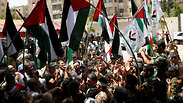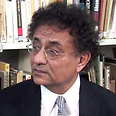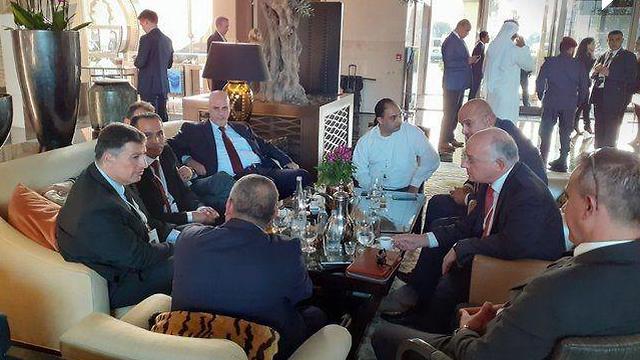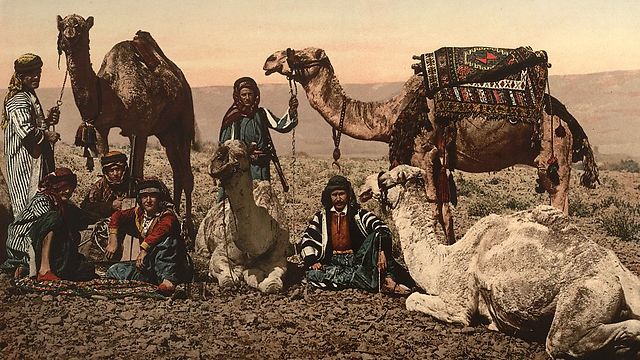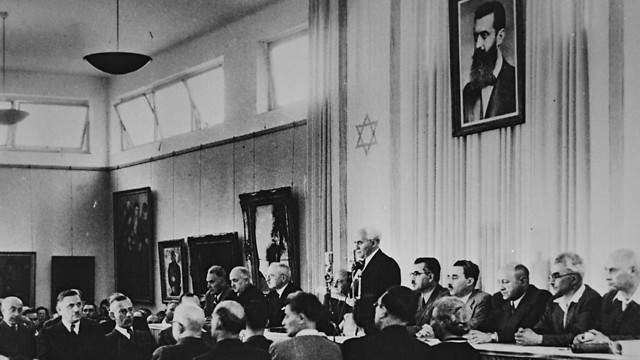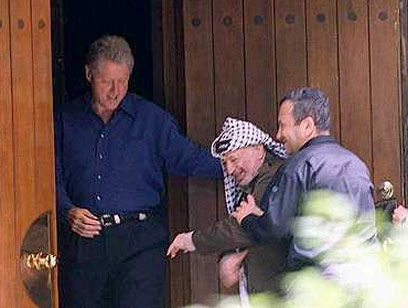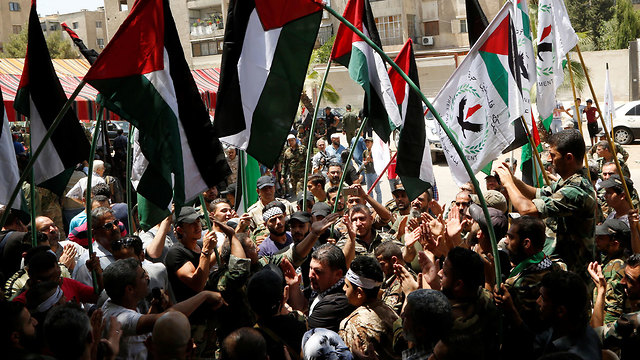The economic workshop taking place Tuesday and Wednesday in Bahrain is a commendable effort but its chances of success, if any exist, will come only from an understanding of the history of the Israeli-Palestinian conflict.
Time and again economic prosperity was achieved, time and again some of the Arab nations in the region enjoyed and profited from it, and time and again, bad actors and inciters came along and destroyed it, often encouraged by political and religious leaderships.
In 1918, Hussein ibn Ali al-Hashimi, who was the emir and sharif of Mecca declared: "The land of Palestine is virgin land that will be developed by the Jewish migrants flowing to it" for the benefit of all residents of the area.
At the 1919 Paris Peace Conference, al-Hashimi's son Faisal signed a joint declaration with Chaim Weizman, who was representing the World Zionist Organization, accepting the Balfour Declaration regarding a Jewish homeland in Palestine.
Just for a moment the future seemed bright, but the inciters won. Faisal became the King of Iraq and the Saud family took control of the Hijaz.
Jews continued arriving in Palestine. Infrastructure, factories and developments in agriculture led to Jewish-Arab cooperation and to unprecedented economic prosperity but that ended with the Arab revolt against the British Mandatory forces in 1936.
The Peel Commission that arrived to inspect the situation pronounced among other things that although the Arab population benefited from the influx of Jews to Palestine, it did not have a calming affect. On the contrary, in almost mathematical precision, economic prosperity bread political instability.
Haj Amin al-Husseini was an Arab political leader at the time who embarked on a murderous campaign against economic cooperation with the Jews, and in fact waged war on the financial prosperity they brought.
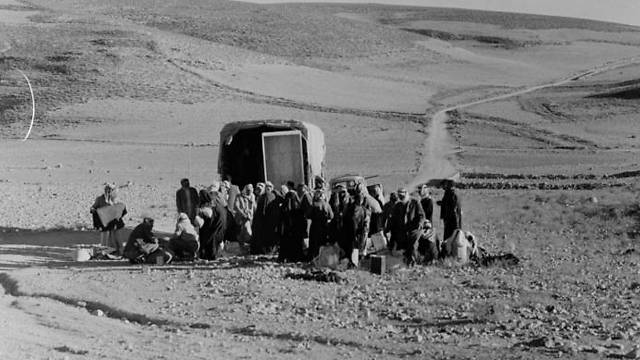
Al-Husseini did not kill many British Mandatory officials or many Jewish residents of Palestine, but he did murder thousands of his own people who chose to cooperate with Jews and enjoy financial benefits.
He fled to Iraq where he continued his incitement against Jews, leading to the murder of 186 Jewish residents of Bagdad in 1941, in a pogrom known today as the Farhud. Jews were the part of the backbone of the Iraqi economy but after the murders, most of them left the country.
This mode of operation continued with Al-Husseini's successors. Wherever they are able to incite, destruction and hunger inevitably follow. Al-Husseini himself enjoyed a lavish life at the expense of Nazi Germany, which also supplied him with young women to ease his days.
The plan for the partition of Palestine adopted by the UN in 1947 aimed to facilitate the creation of two states on the land - one for the Jews and one for the Palestinian Arabs - included financial cooperation, but to no avail.
It was rejected by all Arab leaders in the region who chose hate, incitement and destruction over their own nation state and cooperation with Jews. The cost of that mistake was the more than 700,000 displaced people who became refugees in neighboring countries.
After the 1948 war, the United Nations decided to establish the Palestinian refugee agenct UNRWA and invest a vast amoung in the welfare of the refugees, but the funds were not used for the purpose for which they were allocated.
One outstanding Palestinian leader, Musa Alami, took a different approach. He set up an agricultural farm near the town of Jericho in the West Bank, providing employment to hundreds of families. He also opened a school and a center for orphaned children, and the agricultural products from the farm was were destined for the international markets.
Almi was also a nationalist who preached about the future destruction of the Jewish state, but was still considered a traitor for building an economic foundation. His property was ransacked by mobs.
I could go on.
In the 1990s after the Oslo Accords were signed, unprecedented international aid was raised for Palestinians but that did not stop them rejecting the peace plans drafted by then-prime minister Ehud Barak and U.S. president Bill Clinton and embarking on a violent uprising that lasted for many years.
The Palestinian economy is reliant on aid. They in fact lead the charts in the amount of aid per capita.
When you add the UNRWA funds to the mix you get massive amounts of money, making the funding proposals expected to be discussed at the Bahrain workshop small change compared to the amounts they have already received.
Israel too received massive amounts in military aid from the United States, but has used the funds to develop its military and its economy - and not to maintain the role of victim.
So while the workshop in Bahrain should be commended and even cheered, one must ask what has changed to make anyone think that the Arab nationalism and incitement of today will lead to any outcome other than the Arab nationalism and incitement of the past.













